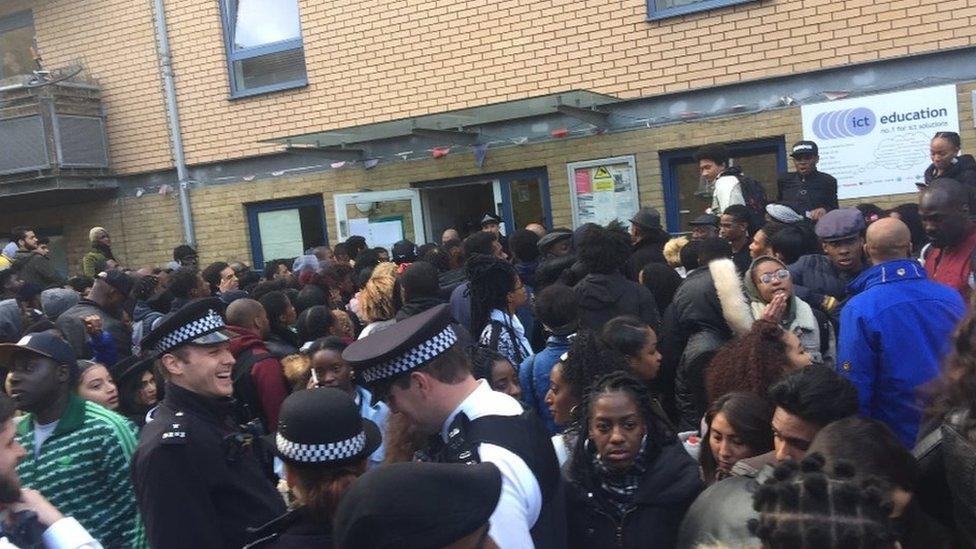Will Gompertz reviews Idris Elba's In The Long Run ★★★☆☆
- Published
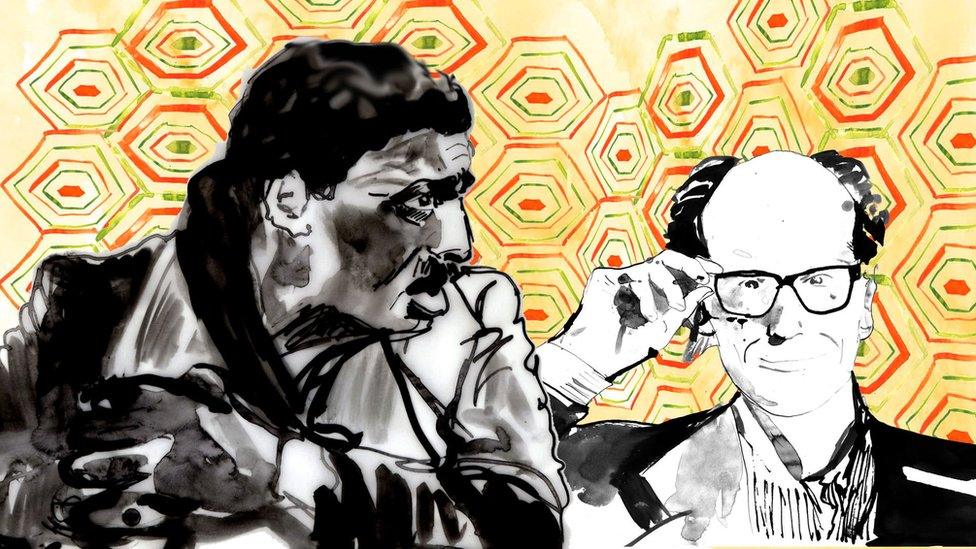
Sky One's new sitcom, In the Long Run, is a kind-hearted, rose-tinted, lovingly nostalgic 1980s period piece, which is as warm as a fresh Pot Noodle.
It feels dated, but then it's supposed to. Great attention to detail has been paid to the look and feel of the London estate on which it is set.
The same applies to the soundtrack, which - for anybody who grew up in the 80s - is good enough to be slightly distracting.
So frequent are the track changes - from The Cure, to Bowie, to The Clash - you inadvertently find yourself drifting back in time to Peter Powell's Radio One show and playing imaginary Spot-the-Intro. If you've got an old Sony Walkman stashed away somewhere, now might be a good time to pop it on eBay.
That the show makes Only Fools and Horses feel edgy came as a bit of a surprise, given its creator is the actor Idris Elba.

Elba in the slightly more serious role of Luther
This is a man who has made his name playing uncompromising tough guys. First off, there was his superb portrayal as the villainous Stringer Bell in The Wire, and then came Luther, the British detective with a penchant for violence.
It's hard playing a hard man, but it's harder still being a funny guy. And maybe even tougher when it is your own story you're sending up, which is the case here.
Idris Elba is the show's creator and star. He plays the newly immigrated Walter Easmon, a character based on his own father, while Sammy Kamara is Kobna, his bright-eyed, asthma-suffering 12-year old son who is - to some extent - the young Idris.
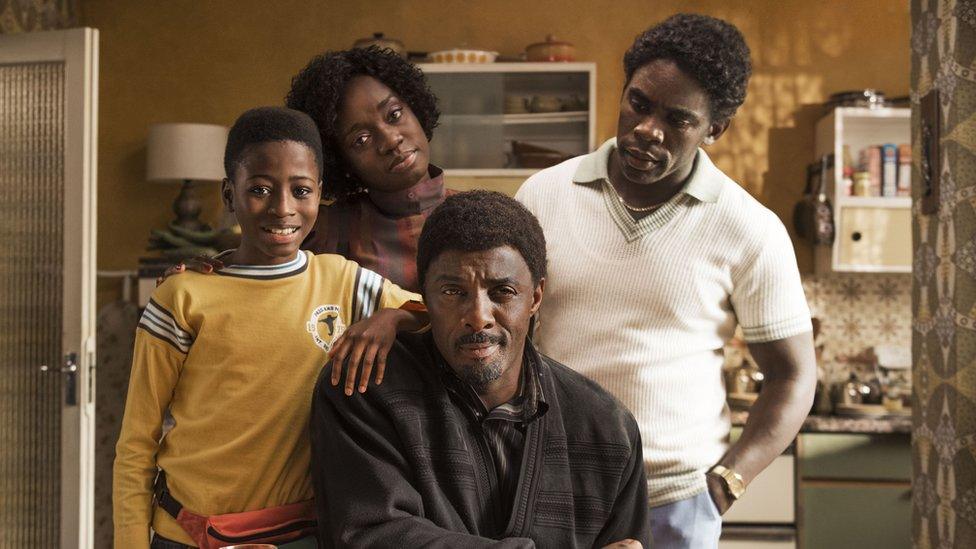
Sammy Kamara (Kobna), Madeline Appiah (Agnes), Idris Elba (Walter) and Jimmy Akingbola (Valentine)
The back story and set-up are dealt with in the opening scenes, in which we see Walter reading a letter from his mother sent from her home in Sierra Leone.
She congratulates him for coming to London and starting a new life with his wife and child, and then casually drops in that she is sending his younger brother Valentine (Jimmy Akingbola) to live with him, before signing off with "look after my little boy please".
At this point a drop of water falls on the letter, suggesting a tear but proving to be a leak from the flat above, inhabited by Walter's best friend, Bagpipes (Bill Bailey) and his partner Kirsty (Kellie Shirley) and an unresolved issue.
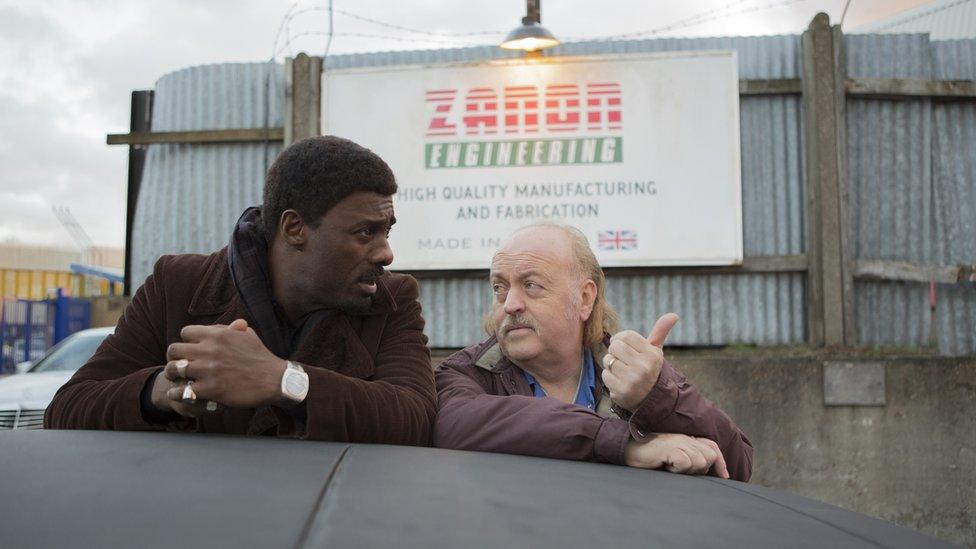
Walter's neighbour Bagpipes is played by Bill Bailey
Cut to Valentine's arrival at the airport, where we discover he is not a "little boy" at all, but a very big character with an eye for the ladies and an ear for the decks.
Cue much hilarity and some sharp, well-observed scriptwriting as this naïve rascal gets stuck into life in a riot-torn inner city where casual racism is the lingua franca.
Well, that's what was billed. In reality, there's not that much hilarity.
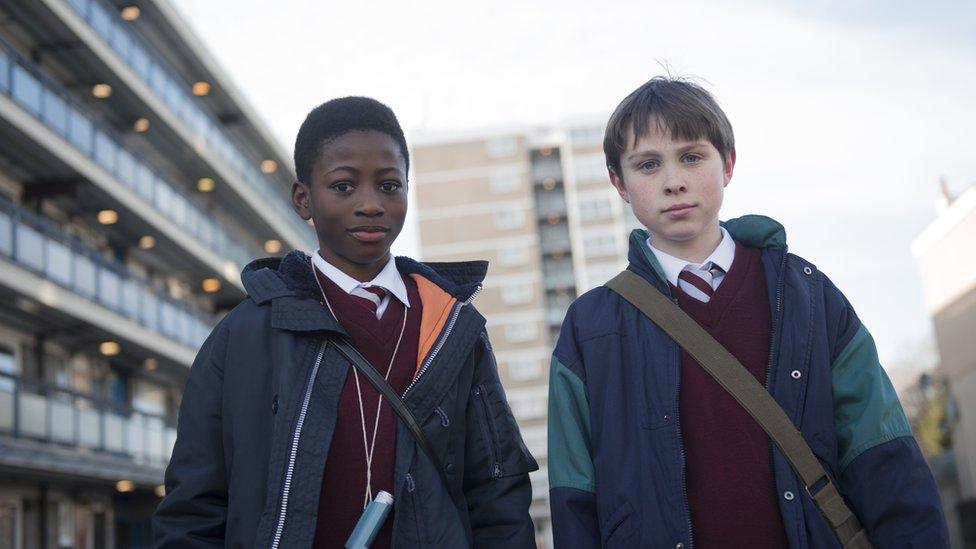
Sammy Kamara (as Kobna) and Mattie Boys (as Dean)
That's partly down to the writing and partly down to the acting. Jimmy Akingbola is a very welcome screen presence but has a tendency to over-egg things, while Elba can appear a little stiff at times while he waits to deliver a comic line.
The stand-out performance comes from Madeline Appiah as Agnes, Walter's intelligent, responsible wife, who works selling makeup door-to-door to a largely ungrateful clientele.
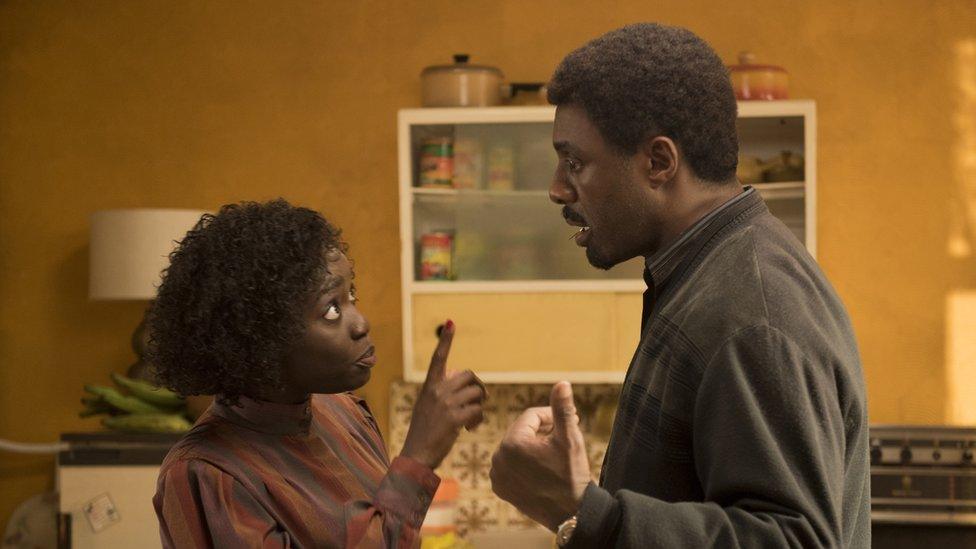
Madeline Appiah, as Agnes, delivers the stand-out performance
There are moments where the vibe feels more Grange Hill than a super-sharp 21st century sitcom to compete with the high-quality output regularly produced by Saturday Night Live-hardened writers and performers. But that's okay, because it offers something else.
For starters, it's refreshing to have a story told from a black, British, working-class perspective. And secondly, it is only the beginning.
The optimistic tone set in the first two episodes might be surprising, but it is also compelling. Added to which, it creates a fertile environment for Bill Bailey's deadpan pathos, and a safety net for Valentine to fall into when he's pushed his luck once too often.
- Published10 February 2018
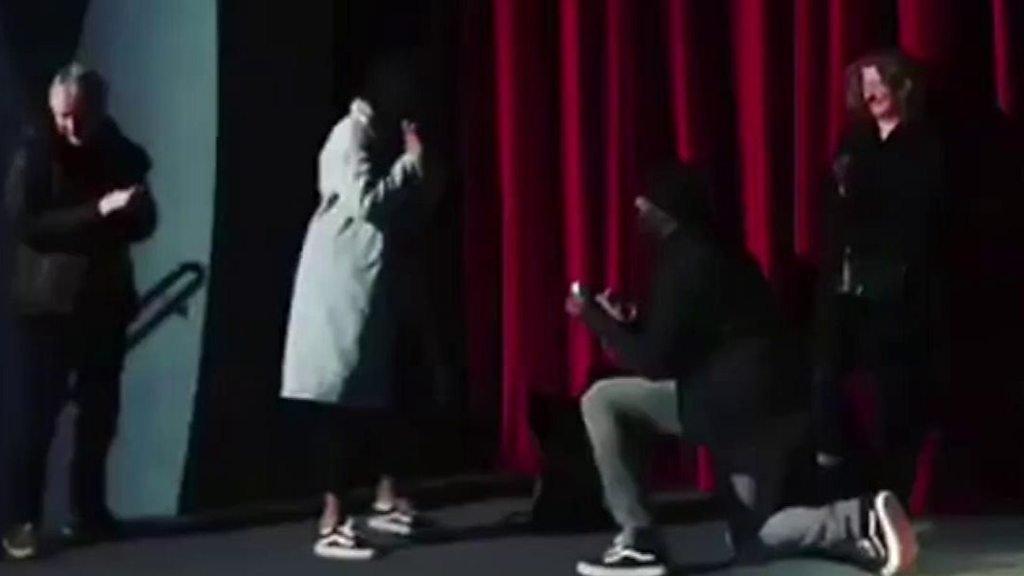
- Published12 June 2017

- Published8 May 2017
